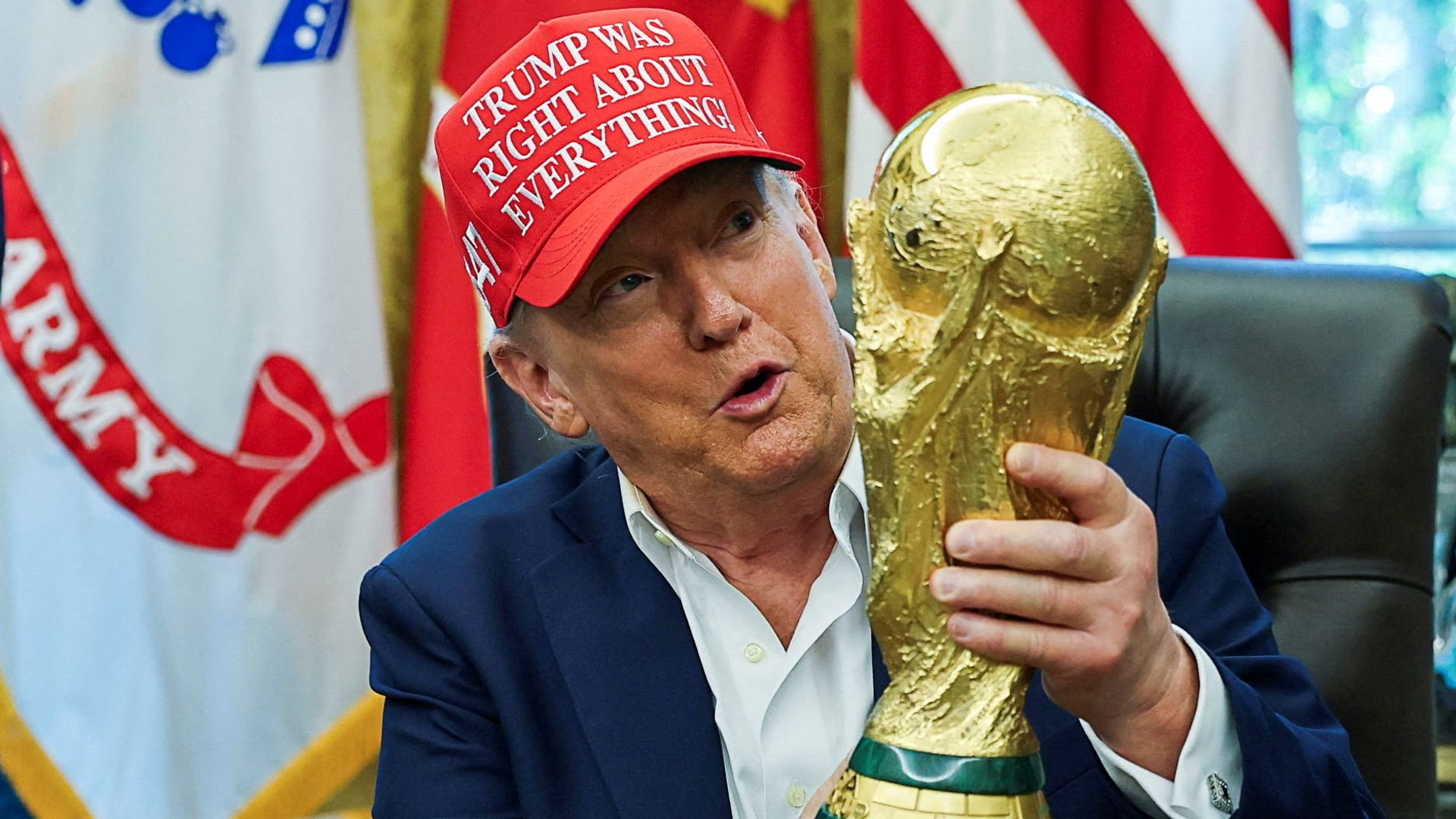
The United States government has asked nine US universities to agree to a number of demands in order to receive “preferential access” to federal funds.
The Wall Street Journal reported on Wednesday that the universities had received a memo telling them to cut foreign enrolment and crack down on departments that “belittle” conservative ideas if they are to qualify for funding.
The White House has not publicly announced the memo and has not explained why these nine universities in particular have been singled out.
Here is what we know about the new requirements for universities seeking federal funding.
What does the White House memo to US universities say?
The 10-point memo is titled “A Compact for Academic Excellence in Higher Education”.
Under the terms of the agreement laid out in the memo:
- Universities must ensure that admissions and financial support services disregard race and sex when admitting students and hiring staff and faculty.
- They must publicly share anonymised admissions data, including GPA and test scores, broken down by race, national origin and sex.
- All applicants to universities are required to take a standardised test, such as the SAT, before they can be admitted.
- International students must not make up more than 15 percent of undergraduate enrolments.
- Universities must ensure they remain a “vibrant marketplace of ideas on campus” with no dominant political ideology.
- They must abolish departments which “purposefully punish, belittle, and even spark violence against conservative ideas”.
- Universities are required to freeze tuition fees for five years, reduce administrative costs and publicly share graduate earnings by programme.
- The institutions with endowments exceeding $2m per undergraduate student should waive tuition fees for students enrolled in “hard science” programmes.
Advertisement
Universities which choose not to follow these outlined standards may lose federal benefits, while those that participate and comply will be rewarded.
Which universities have received this memo?
The universities that received notice of this agreement on Wednesday are:
- University of Arizona
- Brown University
- Dartmouth College
- Massachusetts Institute of Technology (MIT)
- University of Pennsylvania
- University of Southern California
- University of Texas
- University of Virginia
- Vanderbilt University

How have these universities responded?
The universities have mostly said they are still reviewing the memo.
Local news outlets in Arizona reported that University of Arizona spokesperson Mitch Zak said in a statement: “The university first learned of the compact when we received it on Oct. 1. We are reviewing it carefully.”
Kevin P Eltife, the chairman of the University of Texas Board of Regents, said in a statement on Thursday: “The University of Texas system is honoured that our flagship – the University of Texas at Austin – has been named as one of only nine institutions in the US selected by the Trump administration for potential funding advantages under its new Compact for Academic Excellence in Higher Education.”
Eltife added that “we enthusiastically look forward to engaging with university officials and reviewing the compact immediately”.
On Thursday, Brown University announced that it is establishing an ad hoc Committee on Diversity and Inclusion to develop the recommendations, as well as a draft action plan for sustaining and enhancing diversity and inclusion on campus over the next decade.
What are the reactions to this?
On Thursday, the country’s second-largest teachers’ union, the American Federation of Teachers (AFT), released a statement rebuking the demands.
“The Trump administration’s offer to give preferential treatment to colleges and universities that court government favour stinks of favouritism, patronage, and bribery in exchange for allegiance to a partisan ideological agenda,” it said.
The AFT was joined by advocacy group American Association of University Professors (AAUP), which has been resisting White House interference in higher education in the US.
“This seems to be [the administration] moving to a carrot approach, but embedded in the carrot is the stick,” Todd Wolfson, president of the AAUP told Reuters.
Advertisement
Professors at the targeted universities have also expressed concern.
“It seems to have a pretty broad theory of what foments political violence – educational institutions that radicalise students through extremism on race and gender are mentioned explicitly,” University of Pennsylvania Carey Law School professor Kermit Roosevelt said in a statement to the university’s student-run newspaper, The Daily Pennsylvanian.

Why is the Trump administration doing this now?
The memo marks the Trump administration’s latest move in its efforts to shift the political landscape of higher education institutions in the US.
Shortly after his inauguration in January, Trump began cracking down on US university students who, last year, participated in protests and encampments against Israel’s war on Gaza.
The administration claimed that these students were spreading anti-Semitism and “pro-Hamas” sentiment on campus. Trump also alleged that universities were carrying out “illegal and immoral discrimination” in the form of diversity, equality and inclusion (DEI) programmes.
On January 29, Trump signed an executive order requiring federal agencies to report any actions they take against anti-Semitism on campus within 60 days of an incident.
One day after this, the White House published a fact sheet in which Trump was quoted as saying: “To all the resident aliens who joined in the pro-jihadist protests, we put you on notice: come 2025, we will find you, and we will deport you. I will also quickly cancel the student visas of all Hamas sympathisers on college campuses, which have been infested with radicalism like never before.”
Since then, several students have been targeted with visa revocations and deportations, including Columbia University graduate Mahmoud Khalil, who was arrested and detained in March. On September 12, a US immigration judge ordered that Khalil, who held a Green Card and is married to a US citizen, be deported to Algeria or Syria.
Columbia University was centre-stage during last year’s pro-Palestine encampments on US campuses, with students taking over Hamilton Hall on campus, renaming it Hind Hall after six-year-old Hind Rajab, who was killed alongside her family by Israeli forces in Gaza in January 2024.
In February, Trump revoked $400m in federal funding to Columbia, citing “a failure to protect Jewish students from anti-Semitic harassment”.
In March, the Trump administration sent a letter to Columbia outlining the conditions for negotiations to restore its funding. Within days, Columbia responded, accepting the government’s demands.
Trump also froze federal funding for Harvard University in April.
On September 30, Trump said that his administration was close to a deal with Harvard after months of negotiations about its school policies. Without revealing many details about the deal, Trump said Harvard will pay about $500m for an unspecified purpose.
Advertisement
Now, the university must require that protesters show university ID if asked and ban face masks which conceal identity, with religious and medical exceptions. It has also hired 36 security officers who are authorised to arrest students with the support of the New York police.
On July 4, the One Big Beautiful Bill – the Trump administration’s tax and spending bill – was passed, which proposes raising taxes on elite universities.
British Caribbean News


